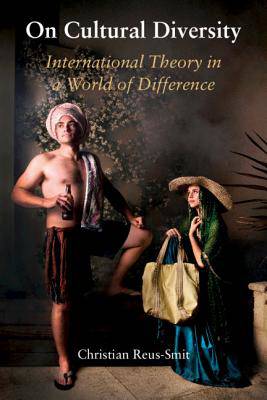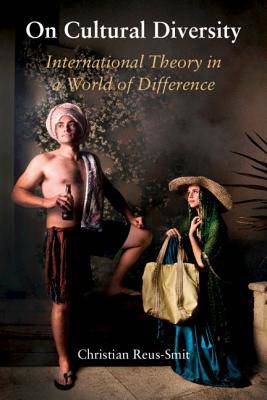
- Afhalen na 1 uur in een winkel met voorraad
- Gratis thuislevering in België vanaf € 30
- Ruim aanbod met 7 miljoen producten
- Afhalen na 1 uur in een winkel met voorraad
- Gratis thuislevering in België vanaf € 30
- Ruim aanbod met 7 miljoen producten
Zoeken
€ 136,95
+ 273 punten
Uitvoering
Omschrijving
The rise of non-Western Great Powers, the spread of transnational religiously-justified insurgencies, and the resurgence of ethno-nationalism raise fundamental questions about the effects of cultural diversity on international order. Yet current debate - among academics, popular commentators, and policy-makers alike - rests on flawed understandings of culture and inaccurate assumptions about how historically cultural diversity has shaped the evolution of international orders. In this path-breaking book, Christian Reus-Smit details how the major theories of international relations have consistently misunderstood the nature and effects of culture, returning time and again to a conception long abandoned in specialist fields: the idea of cultures as coherent, bounded, and constitutive. Drawing on theoretical insights from anthropology, cultural studies, and sociology, and informed by new histories of diverse historical orders, this book presents a new theoretical account of the relationship between cultural diversity and international order: an account with far-reaching implications for how we understand contemporary transformations.
Specificaties
Betrokkenen
- Auteur(s):
- Uitgeverij:
Inhoud
- Aantal bladzijden:
- 274
- Taal:
- Engels
- Reeks:
Eigenschappen
- Productcode (EAN):
- 9781108473859
- Verschijningsdatum:
- 20/09/2018
- Uitvoering:
- Hardcover
- Formaat:
- Genaaid
- Afmetingen:
- 234 mm x 158 mm
- Gewicht:
- 521 g

Alleen bij Standaard Boekhandel
+ 273 punten op je klantenkaart van Standaard Boekhandel
Beoordelingen
We publiceren alleen reviews die voldoen aan de voorwaarden voor reviews. Bekijk onze voorwaarden voor reviews.











